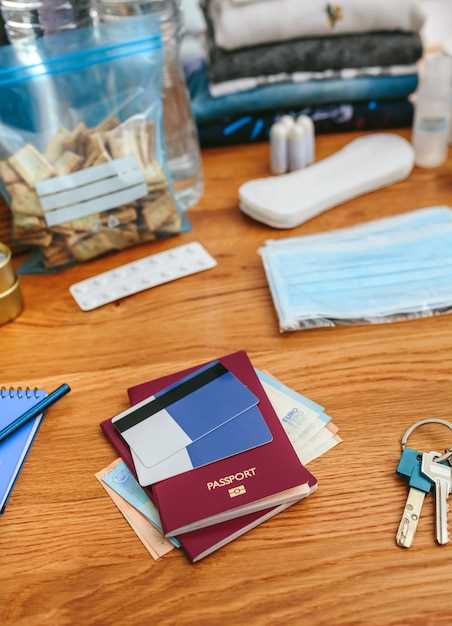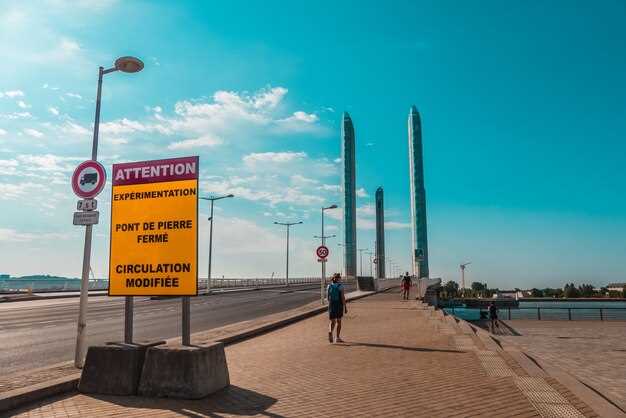Get a policy with medical coverage up to 100,000 USD and emergency evacuation up to 300,000 USD, plus trip disruption protection, and avoid hidden charges. This gives peace of mind for tourists during leisure trips and helps you handle changes quickly. No extra charge applies to emergency care. For many visits, this level of protection is quite affordable and worth considering even if you plan only short trips.
Pricing depends on your age, planning needs, and duration of stay. A basic medical-only plan can cost roughly 1-2 USD per day for a young traveler, while full coverage runs 5-10 USD per day. For a single trip of 14 days, you may see a price around 30-140 USD; for 30 days, 60-280 USD. Always compare the services and limits, and favor policies with low deductibles to avoid extra charge when you claim.
Consider an alternative to standard plans by checking international providers that cover Russia, or local insurers with Russian-language support. Look for easy claims processes, 24/7 assistance services, and a smooth planning flow. A policy covering medical repatriation, hospital stays, and routine clinic visits can save headaches when illness or injury occurs.
For longer trips, choose a plan that scales with duration and includes coverage for multiple visits across cities. If you stay in both remote areas and urban centers, verify that the coverage applies in remote regions and that you can access care without burdensome procedures.
Remember: coverage depends on your age, health, and travel pattern. The final thing you want is a policy that doesn’t cover your most likely scenarios. Read the policy document for limits and exclusions, and confirm the online certificate is valid for the dates of your visits.
Travel Insurance for Russia: Guide to Coverage, Costs, and Tips

Get a policy that includes medical coverage of at least $50,000 and emergency evacuation up to $200,000, plus protection for belongings and trip disruptions. If you are travelling to Russia for skiing or city breaks, choose higher limits and add winter-sports coverage. Ensure the plan covers regional risks and supports fast claims.
Include medical coverage, evacuation, trip cancellationet baggage protection. Look for options that also cover damaged belongings, delayed flights, and cancellations caused by strikes or weather in remote regions. Some policies mention protection for attacks or other security events; verify what triggers evacuation and what regional limits apply.
Costs and options span En ligne quotes from insurers et local companies. Fast underwriting, instant policy numbers, and 24/7 support help travellers. For skiing trips or travel across large region areas, choose higher limits and confirm that services for medical care are available in Russia, including European hospitals if you plan a transfer.
Costs typically run around 2-5% of the trip price or about $2-5 per day for basic coverage on a 7–10 day stay; longer trips or higher limits raise the daily rate. For trips that require visas, ensure the policy covers visa-related delays and cancellation penalties.
How to choose: compare policies from insurers et local companies, confirm that the insurer’s network is accepted at local clinics and hospitals, and verify that the plan will include police reports for theft or damage. Ensure a clear claim path via En ligne portal or phone line and verify the name of the insurer on the policy document for accuracy.
Practical tips: In regions spanning Russia’s vast territory, verify coverage for medical services in remote areas and for emergency support. Carry a digital and printed copy of the policy ID; store phone numbers and the insurer name in case you need to contact En ligne claims. Keep a police report for any loss, and report belongings damage promptly to your insurer.
plus, read customer reviews and verify claim processing times before purchase.
Coverage basics for travelers to Russia
Choose a policy where medical care and emergency evacuation are included. This will provide reliable protection against high medical cost and ensure swift access to treatment during visits.
Request a clear breakdown of coverage limits, deductibles, and exclusions, plus any costs for emergency evacuation and dental needs. For cost transparency, ask for a per-visit breakdown and the annual limit.
Check requirements for entry to Russia; some visa processes require proof of insurance. If you plan driving in Russia, confirm your plan covers driving or offers a suitable rider as an optional add-on.
Popular options for travelers to Russia come from insurers offering large networks and reliable 24/7 support, especially in major areas and during peak travel times.
Costs and affordability matter: compare the cost, limits, deductibles, and exclusions. A balanced plan will provide coverage for excursions, medical care, and evacuation while staying affordable.
During visits to popular cities or rural areas, verify what is included and what would require an extra cost. Citizens traveling with family or groups should check whether the policy offers coverage for dependents and driving-related incidents in case of emergencies.
When you compare plans, ask insurers for the coverage you will provide in a typical case of medical needs, accidents, or trip disruptions; aim for a balance between protection and price, and please choose a plan that aligns with your itinerary.
What medical expenses are covered in Russia: limits, deductibles, and exclusions
Start by reviewing the policy’s emergency medical limit and deductible for Russia, and apply a plan from a known company that clearly covers costs within the country. Please choose a package that includes hospital care, emergency transport, and prescription drugs, with a network that supports clinics used by locals and Mastercard acceptance where you pay, if needed.
-
Coverage scope
- Emergency medical treatment for illness or accidental injury, including hospital stays, surgery, and diagnostic tests.
- Ambulance transport and, when appropriate, air or ground transfer to the nearest suitable facility.
- Prescriptions, medically necessary supplies, and follow‑up visits that are advised by the treating physician within policy terms.
- Rehabilitation services and physical therapy when they are required for recovery and are within the limit.
- Basic dental care needed to treat an acute condition that could affect health during the stay, if the plan includes it.
-
Limits and deductibles
- Emergency medical limits commonly range from an estimated $50,000 to $500,000 per incident, depending on the type of plan, with deductibles from $0 to several thousand dollars.
- Deductibles may apply per incident or per trip; verify how they apply to inpatient versus outpatient services.
- For high‑risk activities (such as mountain excursions), choose a package with higher limits and consider optional riders to avoid gaps in coverage.
- Policies that include a “per‑event” cap help when several medical events occur during a single trip.
-
Exclusions
- Pre‑existing conditions unless specifically advised or ridered; routine health checks and elective care are usually not covered.
- Care received outside an approved network unless the insurer authorizes it; treatments in zones with limited infrastructure may be limited as well.
- Care related to illegal activities, intoxication, or experimental therapies; cosmetic procedures without medical necessity are excluded.
- Non‑emergency services, equipment rentals, or supplies not deemed medically necessary by the attending physician.
-
Practical steps to stay protected
- Before you travel, confirm that the policy applies to costs within Russia and that the network includes known regional hospitals and clinics; verify that payments can be processed by Mastercard or other major cards.
- During care, contact the insurer’s 24/7 support by e-mail or phone to confirm coverage, arrange cashless services where available, and get an estimated cost for the treatment.
- Ask for an itemized invoice and a translated medical report if needed; keep all receipts and proof of payment in case you file a claim later.
- Consider an alternative care path if the nearest facility is not in the network; your plan may offer telemedicine or remote triage to reduce difficulties.
- If your trip lasts longer than planned or you travel to remote zones, check whether coverage extends to longer stays and to transport back home if required.
-
Documentation and communication
- Keep the policy number, insurer contact details, and the e-mail of your claims contact handy; many providers offer online forms and multilingual support.
- Save the type of service received, the facility name, and the exact charges; this information helps when you apply for reimbursement or a cashless settlement.
- If you use a travel package, verify how “packages” of services coordinate with medical coverage and whether any elements require separate authorization.
-
Tips for staying within budget and avoiding surprises
- When you are in a mountain region or traveling by trains between cities, confirm the nearest in‑network facilities in advance and carry the insurer’s phone number for quick access.
- Ask about an optional rider for adventure activities; this can reduce out‑of‑pocket costs if you engage in frequent outdoor activities.
- If you don’t speak Russian, request English support and keep a written summary of your coverage; some clinics can bill the insurer directly if authorized.
- Review visa requirements and ensure your travel documents align with the policy’s terms; mismatches can complicate claims or services.
- Check the insurer’s last update on regional coverage and whether “zones” with limited access affect reimbursement timelines.
Emergency evacuation and repatriation: triggers, limits, and typical costs
Get a policy that includes emergency evacuation and repatriation with a minimum limit of 300,000 USD, issued by a reputable insurer. Look for a certificate of coverage that clearly lists international validity across every location you plan to visit. If you are an applicant traveling along the trans-siberian route, verify the issuing office in your country and ensure the certificate remains valid to support care decisions, because experience with claims matters.
Triggers for evacuation include medical emergencies, serious accident, or the need for specialized care not available locally. Political unrest or natural disasters that disrupt service also qualify. The policy should authorize evacuation when a local facility cannot provide the necessary care and there is a risk to life; therefore, you may be moved to a facility in another country or repatriated to your home country depending on your care plan. This is particularly important in remote areas where access to treatment varies by location.
Limits cover per-incident and total maximums, with some plans offering extended coverage for multiple countries. For a trans-siberian itinerary, choose options that pool protection across all locations rather than treating each stop separately. Check whether evacuation and repatriation are included together, whether a caregiver return is covered, and what happens with meals (food) and lodging during relocation. If a loss or lost item is involved, verify how property losses are treated.
Costs vary by distance and method. An air ambulance may cost from 25,000 USD to over 100,000 USD; a commercial evacuation typically ranges from 5,000 to 20,000 USD; repatriation of remains, if needed, can exceed these figures. Currently, some plans require upfront payment and reimbursement later, while others offer direct billing with the hospital. The plan schedule shows what the policy includes, including meals and care. For trans-siberian trips, expect additional charges for cross-border transfer and longer stays in remote locations. Plus, you may see higher rates if you add dependents or extended stay coverage.
When evaluating options, request a clear schedule of benefits, confirm the country list includes the destinations you will visit, and verify the network is international with a reliable office contact. Ask for a certificate of coverage with the issuing insurer’s details and a 24/7 emergency line. If you have pre-existing conditions or ongoing care needs, disclose them during purchase to avoid denial at the time of an accident. Looking at the numbers, compare starting coverage and plus options. Look for a union of insurers offering broad access to hospitals and clinics in all major countries you travel through.
Practical tips: keep digital and paper copies of the policy and the emergency numbers accessible. Carry proof of coverage for every leg of the trip, including the trans-siberian segment; know the steps to trigger an evacuation and whom to call. The insurer will coordinate with the local office and international partners to arrange care and transport. If you lose your documents or the bag containing them, contact the claims office immediately. The union network can route you to supported facilities in remote locations and across borders, with options that cover food, care, and accompanying persons when you need them.
Trip cancellation, interruption, and delay: coverage specifics for Russian itineraries

Get a policy that guarantees trip cancellation, interruption, and delay coverage with at least USD 1 million for prepaid costs and emergency assistance while traveling to Russia. Choose a well-known insurer offering 24/7 english-speaking support and a straightforward claims flow, with an issuing office you can contact from any area. Look for cancellation coverage that protects flights, hotels, tours, and other items if you or a travelling companion falls ill, or if official advisories or visa-issuing delays prevent departure.
Cancellation specifics for Russian itineraries include refunds for non-refundable payments on flights, hotels, and other destinations in big cities and smaller towns. Ensure the policy covers penalties if you or a companion cannot travel due to illness, injury, or death, as well as cancellations prompted by government advisories or visa issues. For those planning a multi-city route, confirm the plan applies to all cities and destinations you intend to visit and that you can show proof of loss when filing a claim.
Interruption coverage protects prepaid portions you cannot use when plans are disrupted by medical emergencies, security events, or regulatory changes. The policy should reimburse unused portions, plus reasonable costs to return home, and transfer to a later date or a different flight on the same itinerary. Look for coverage for damaged luggage or items, and ensure the claim process remains smooth even if you face difficulties contacting the official office abroad.
Delay protection kicks in for eligible delays to flights or other transport. Typical thresholds start at six hours or more, with reimbursement for meals, lodging, local transport, and essential items while you wait. The policy should cover rebooking or transfer to a new flight, and provide a quick path to claim submission through the english-speaking office so those travelling solo or with others avoid unnecessary cost and stress. At major area airports–the biggest cities and popular destinations–check that hotel costs are included when delays extend overnight.
Practical tips for those visiting Russia: choose a plan that covers visitors and citizens across various destinations, from the biggest cities to remote area points. Verify the official process for refunds and confirm the issuing authority of the plan offers an english-speaking office. Keep digital copies of receipts and a list of damaged or missing items; file your claim promptly and in the required format. For peace of mind, carry policy numbers, emergency numbers, and a summary of coverage in your own language, so solo travelers or families can move quickly if difficulties arise and avoid costly delays due to visa issues, flight problems, or other interruptions. Also consider the needs of the local population and visiting tourists when selecting add-ons like medical assistance or baggage coverage.
Baggage loss and delay: coverage for belongings, valuables, and emergency purchases
Starting with a policy popular among travelers, choose a plan that covers loss and delay of luggage, including belongings and valuables, and provides upfront reimbursement for emergency purchases while awaiting delivery. Look for options that apply to multiple trips and to both domestic routes and international legs, especially between Moscow and Vladivostok on train routes.
Clarify how the policy defines loss and delay, the per-item and total limits, and whether there is a separate cap for medical items or valuables. If you plan eastern routes toward China, confirm cross-border coverage and any regional exclusions. A clear breakdown helps front-line staff handle your case without delays.
Having a straightforward workflow saves time: start the application using the app or visit an office for in-person help. Ensure the plan is widely accepted by popular banks and that the insurer can work with them. For those who carry luggage during trips on trains, the policy should cover items you carried on your person as well as checked bags.
Documentation required includes itemized lists, receipts, and reports; in many cases you must report loss to the airline or airport authorities and attach a police or incident report if requested. Use a valid licence to verify identity. The application and supporting documents can be stored in the app for easier processing during medical or travel events.
Delivery and payments: if you face last-minute delays, some plans offer full reimbursement for essential purchases like clothing and toiletries, with quick payments once proofs are reviewed. In stunning simple processes, you can get replacements via delivery from local partners, or vouchers that let you buy on trips. Explore options that work with local networks in eastern hubs and cross-border links with China to speed things up. This is not only about refunds but about getting what you need when you need it.
| Area | Coverage focus | Notes | Typical processing |
|---|---|---|---|
| Moscou | Loss or delay of luggage; items carried and checked | Office support; delivery options | 7–10 days after proof |
| Vladivostok | Train legs; regional coverage | Verify licence and ID; quick reports | 5–14 days |
| Eastern | Cross-border aspects toward China | Multiple options for rapid replacements | Subject to regional rules |
| China | Cross-border trips; loss or delay during transit | Direct payment or delivery options | Vouchers or reimbursements |
| Last mile | Delivery of replacements to hotel or office | Keep reports and receipts | Faster when documents are complete |

 Travel Insurance for Russia – Essential Guide to Coverage, Costs, and Tips">
Travel Insurance for Russia – Essential Guide to Coverage, Costs, and Tips">

 Moscow Public Transport Guide for Tourists – The Complete Guide">
Moscow Public Transport Guide for Tourists – The Complete Guide">
 Moscow Hotels with Airport Shuttle – Best Picks for Easy Airport Transfers">
Moscow Hotels with Airport Shuttle – Best Picks for Easy Airport Transfers">
 From Moscow to Suzdal – The Ultimate Day Trip Guide">
From Moscow to Suzdal – The Ultimate Day Trip Guide">
 Luxurious Travel to Moscow – The Best Places to Visit in Style">
Luxurious Travel to Moscow – The Best Places to Visit in Style">
 Nightlife in Moscow – Bars, Clubs, and Evening Entertainment">
Nightlife in Moscow – Bars, Clubs, and Evening Entertainment">
 Best Day Trips from Moscow – Exploring the Surrounding Region in 2025">
Best Day Trips from Moscow – Exploring the Surrounding Region in 2025">
 Winzavod Art Center Guide – Moscow Gallery Visit Tips">
Winzavod Art Center Guide – Moscow Gallery Visit Tips">
 May Newsletter – How to Avoid the M-4 Highway from Moscow to Sochi">
May Newsletter – How to Avoid the M-4 Highway from Moscow to Sochi">
 Circle Line Cruise NYC – The 6 Best Tours for 2025">
Circle Line Cruise NYC – The 6 Best Tours for 2025">